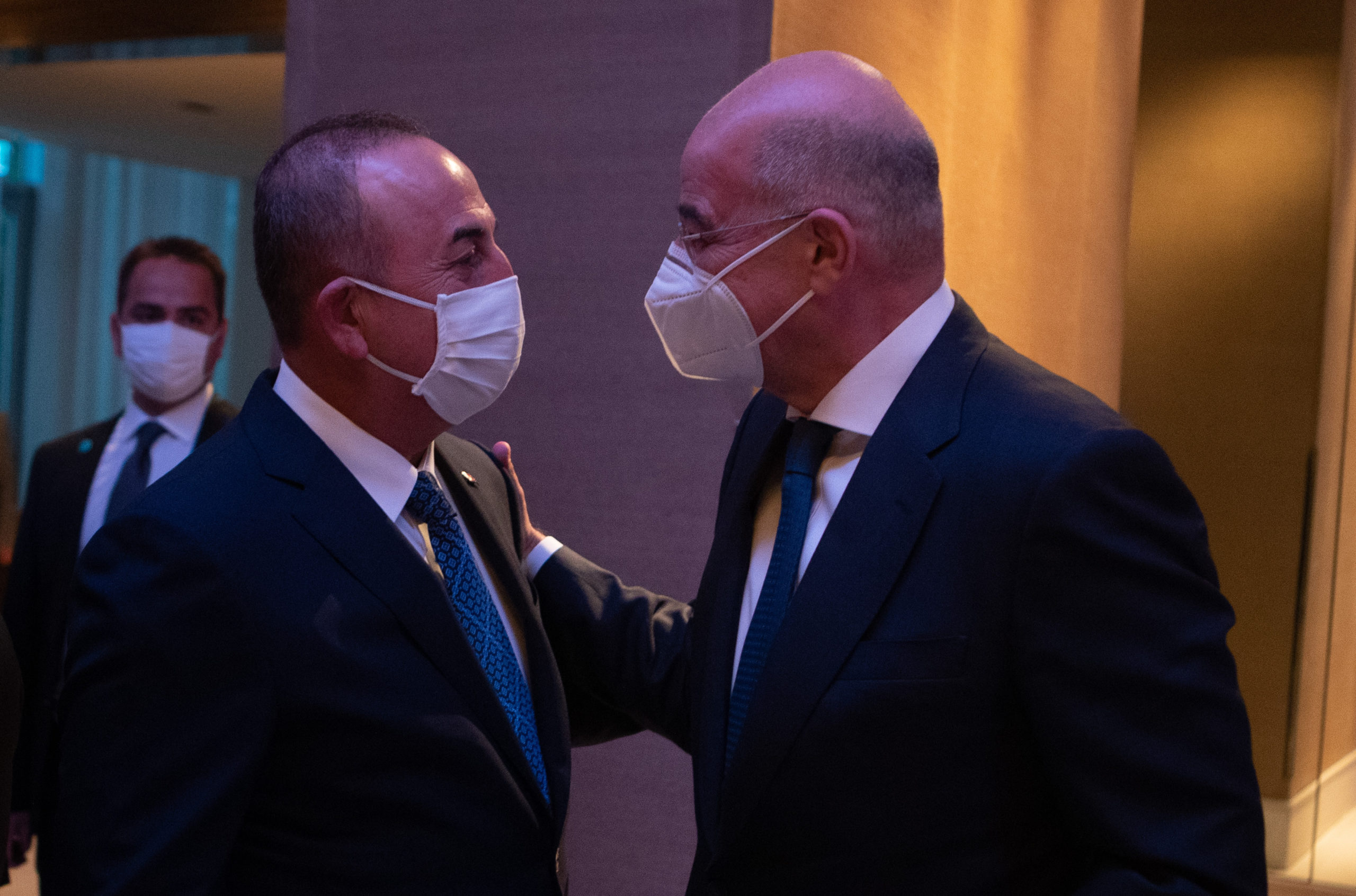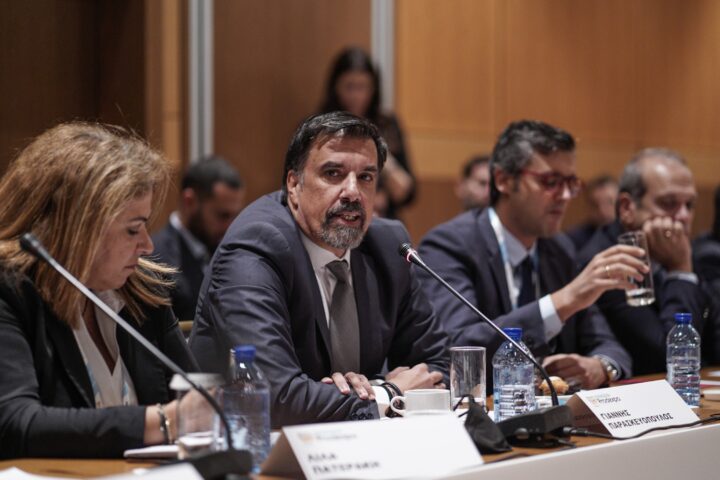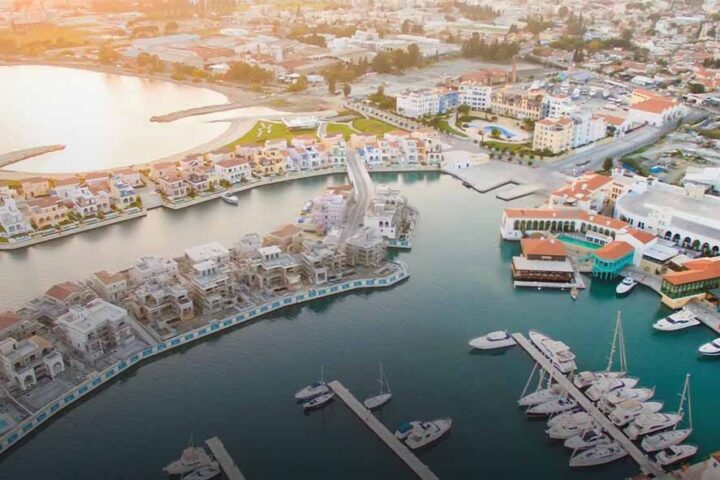For someone who follows Greece’s foreign affairs, the last few months have been astounding on all counts.
A flurry of activity has included non-stop engagement by Foreign Minister Nikos Dendias with the EU and US at the highest level and personal contacts with heads of states and his counterparts in the region.
After signing maritime delimitation agreements with Italy and Egypt last summer, to stave off Turkey’s aggressive moves in the Aegean and the East Mediterranean, Greece extended its territorial waters to 12 nautical miles in the west, entitled to do so under the UN Convention of the Law of the Sea (UNCLOS).
Greece, along with 160 other countries, is a signatory to the Convention, but Turkey is not.
Dendias is trying to deepen Greece’s engagement in the region by pursuing closer ties in energy, trade, defence, and diplomacy in a multifaceted effort to confront Turkey’s provocations and cultivate stronger political and defence alliances.
Within two weeks, Dendias visited Libya (twice), Egypt, Cyprus, the UAE, Saudi Arabia, and Turkey.
Driven by a strong desire to counterbalance Turkey’s regional overreach and aggressive foreign policy, often targeting Greece over sea zones in the Aegean and the East Mediterranean, Dendias spared no effort in visiting his counterparts and heads of government in the region.
His message has been loud and clear on Turkey’s aggression and Greece’s willingness to find a modus vivendi with her neighbour by pursuing exploratory talks on maritime boundaries first in Istanbul on January 25, then in Athens, culminating with Dendias’ visit to Ankara on April 15.
Starting with Libya, which he first visited with PM Kyriakos Mitsotakis on April 6, the key issue was the illegal agreement, under international law and UNCLOS, signed between Libya and Turkey in November 2019.
At the time, they had agreed on common sea boundaries by trespassing Greece’s maritime zones around the islands of Crete, Rhodes, and several smaller ones.
Greece’s Prime Minister described the Turkish-Libya agreement as null and void, totally illegal.
Greece argues the agreement ignores crucial provisions of UNCLOS, particularly those concerning the right of islands in all maritime zones, which is something Ankara does not accept.
Athens is concerned it might be ratified by the Libyan House of Representatives, which the previous government, the GNA, failed to do because it did not control the parliament.
Greek diplomatic sources said the new Government of National Unity (GNU) was reminded that maritime delimitation would affect bilateral relations and the Libya-EU relationship.
Athens is willing to increase its presence in Libya, and the Greek embassy in Tripoli has been renovated and reopened. At the same time, a new consulate general was inaugurated in Benghazi, where Libya’s parliament sits.
Indicative of increased regional engagement was the meeting of Greece, Cyprus, Israel and UAE foreign ministers in Paphos on April 16-17, where they discussed cooperation on a broad agenda including the pandemic, energy, tourism, crisis management, youth exchange and collaboration between academic and research institutions.
The Greek FM visited Saudi Arabia on April 22 to hold talks with Crown Prince Mohamed bin Salman and members of the Saudi government, culminating with the signing of a bilateral defence cooperation agreement.
Signing the agreement was Greece’s Minister of Defense Nikolaos Panagiotopoulos, who stressed the two countries’ “common concerns about current geostrategic challenges and a common vision of the future.”
Greece and Turkey
As part of Greece’s newly assertive foreign policy, its government sought to revive exploratory talks with Turkey on maritime boundaries in Istanbul on January 25, after a five-year hiatus, under much encouragement from the EU.
That was largely a ceremonial affair, with Turkish President Recep Tayyip Erdogan’s advisor, Ibrahim Kalin, showing up at the last minute to impress upon the US and EU that Turkey is taking the process seriously.
Shortly after that, Greece issued an early March invitation for the next round.
The Greek side wanted to make sure of at least one substantive discussion with Turkey before EU leaders sat down to discuss a long-awaited report on EU-Turkish relations from the bloc’s High Representative, Josep Borrell, at the European Council meeting of March 25.
Turkey, eager to hear the results of that discussion, appears to have stalled for time, hoping to postpone the talks until after the EUCO.
Greece was incensed.
“We will not fall into the trap of undermining talks if that is the intention of the other side. Turkey needs to demonstrate that it wants the smooth continuation of contacts, which are not helped by threats and perennial tension,” Dendias tweeted on February 28.
Turkey did not respond to the Greek invitation until March 10, when the proposed date had passed.
Talks took place in Athens on March 16 and lasted for five hours.
Greek diplomatic sources called the talks “good”. A discussion at the political level took place the following day.
This surprisingly sanguine state of affairs did not come about easily, and many Greek officials suspect it may not last long.
On February 22, the Turkish hydrographic ship Cesme sailed into the international waters of the central Aegean, west of Limnos and Agios Efstratios.
Its area of exploration was marked by a February 15 Turkish Navtex for the period Feb 18-Mar 2.
Greece said the Navtex was illegal because the Izmir coastguard did not have the jurisdiction to issue it. The Cesme eventually returned to port.
In separate interviews, the Greek and Turkish defence ministers demonstrated the tension between the two countries, even after exploratory talks resumed.
In a February 26 interview with Le Figaro, Greek defence minister Nikos Panayotopoulos stressed the strategic importance of ties with France, from where Greece is purchasing fourth generation Rafale fighter jets.
Public spat
As Greece and Turkey attempted to deepen their dialogue, Dendias visited Ankara on April 15 in response to a Turkish invitation.
Dendias revealed nothing of what he discussed with president Recep Tayyip Erdogan, but his remarks to the media after meeting his counterpart, Mevlut Cavusoglu, revealed much.
Irritated by Cavusoglu’s iteration of the standard Turkish position that it wishes to have talks without preconditions with Greece, Dendias chastised his host.
“Turkey has violated international law and UNCLOS in the East Mediterranean and the Aegean,” Dendias said.
“Not only that. It has violated Greek sovereign rights. It has flown 400 times over Greek soil, Mevlut. Over Greek soil. There is no legal ruling that allows it to fly over Greek soil. I’m not [even] talking about the sea.”
Dendias reminded Cavusoglu the EU as a bloc is a signatory to UNCLOS, which cannot be dropped as the legal basis for talks.
And he admonished Turkey for breaking its 2016 agreement with the EU on migration.
When Cavusoglu talked about the demilitarisation of the Dodecanese islands, Dendias lashed out: “Why are there soldiers on the islands?… Is there anyone who says there is no military threat and no landing forces opposite the islands? If there aren’t any, it would be good for us to know.”
Regional engagement
Despite the numerous setbacks in its latest attempt to find a permanent solution with Turkey over maritime zone issues, the Greek government appears determined to leave no stone unturned, exercising all means available through international institutions such as the UN and the EU.
It is also increasingly doing so through engagement with the region’s countries, which often fall prey to Turkey’s expansive neo-Ottoman vision for sovereignty in the Mediterranean and the Middle East.
Greece may have not yet reached an agreement with Turkey.
Still, its honest and transparent approach seems to be working out in its favour by deepening cooperation with close partners such as Egypt and Israel and making new friends like the UAE and Saudi Arabia while attempting to tilt the balance in the case of Libya.
Costis Stambolis is a Financial Mirror correspondent based in Athens










